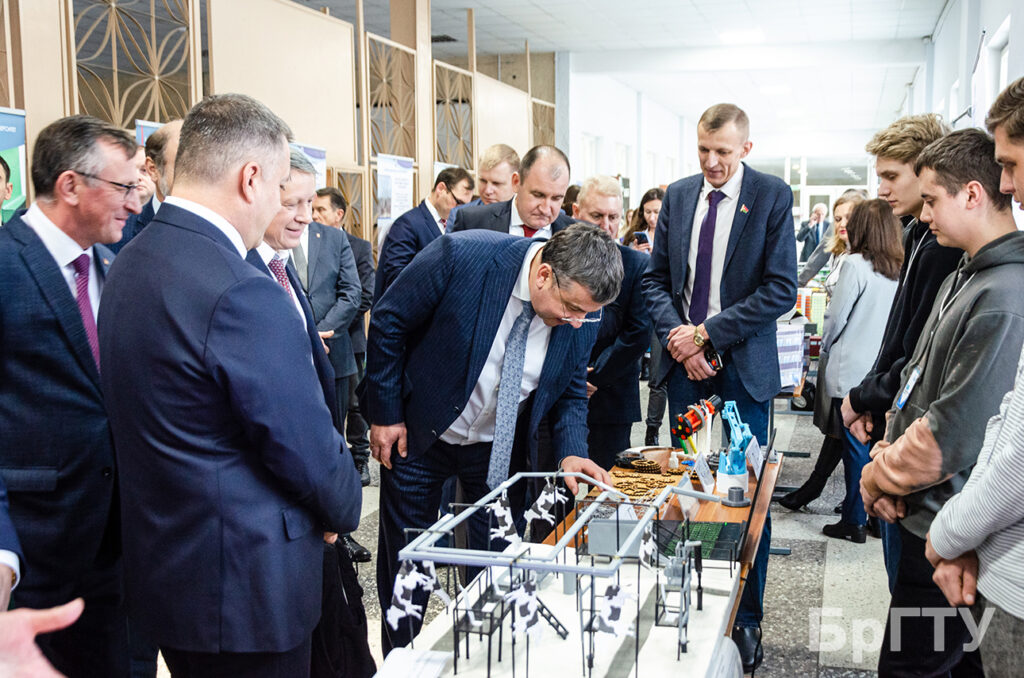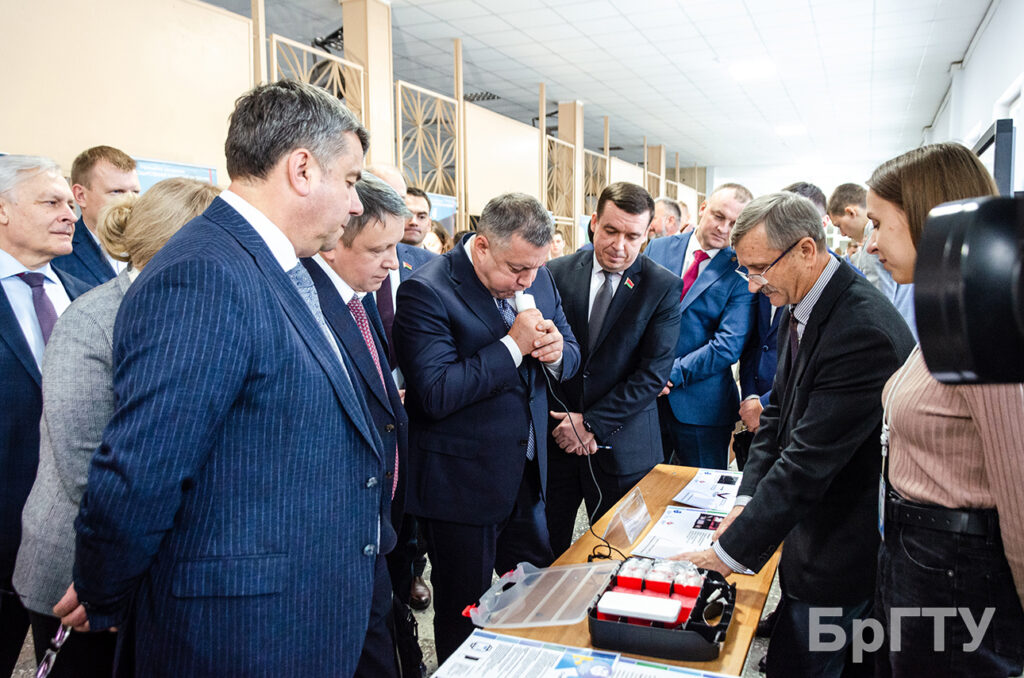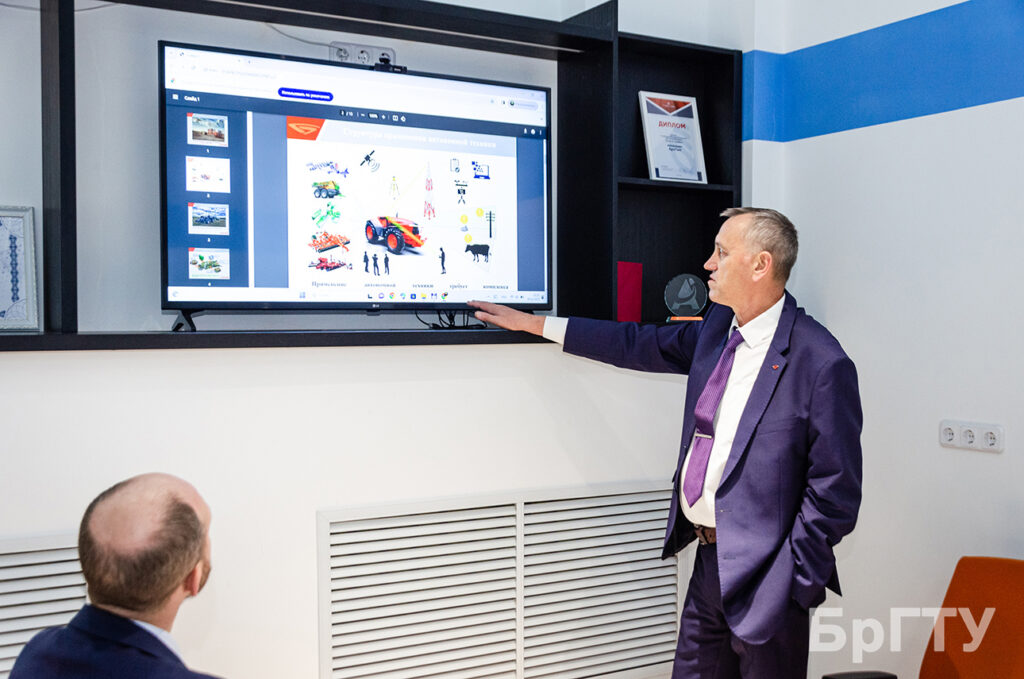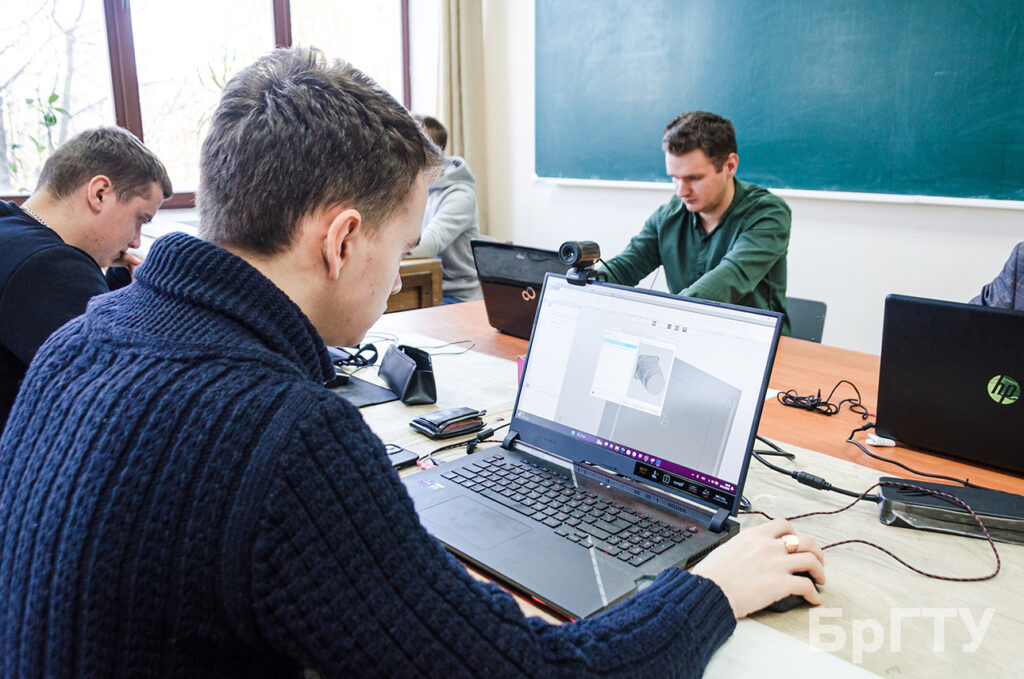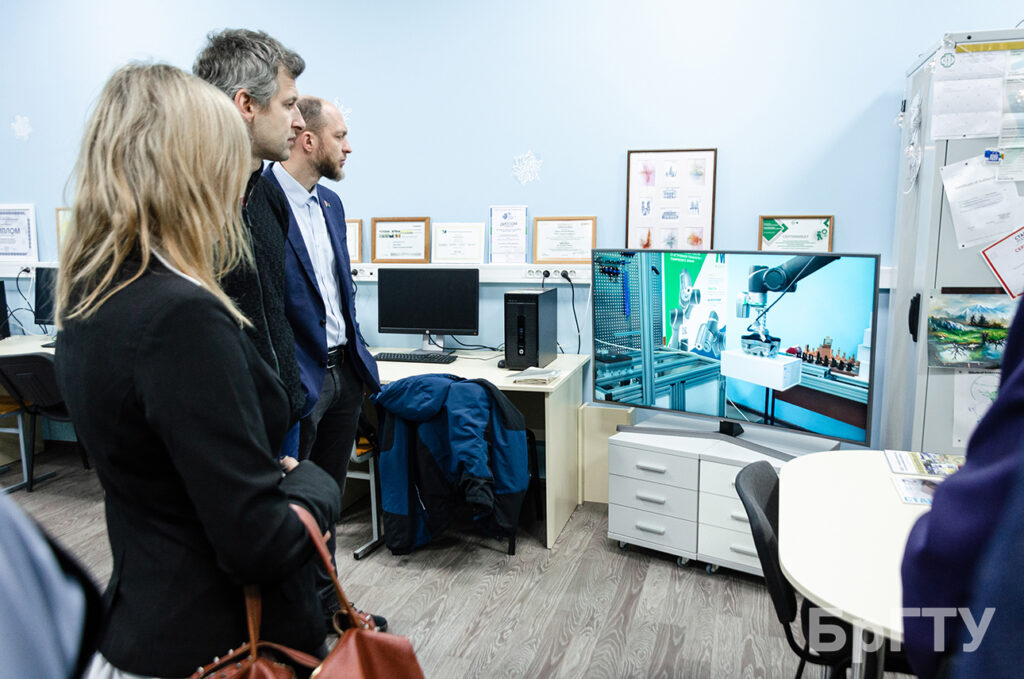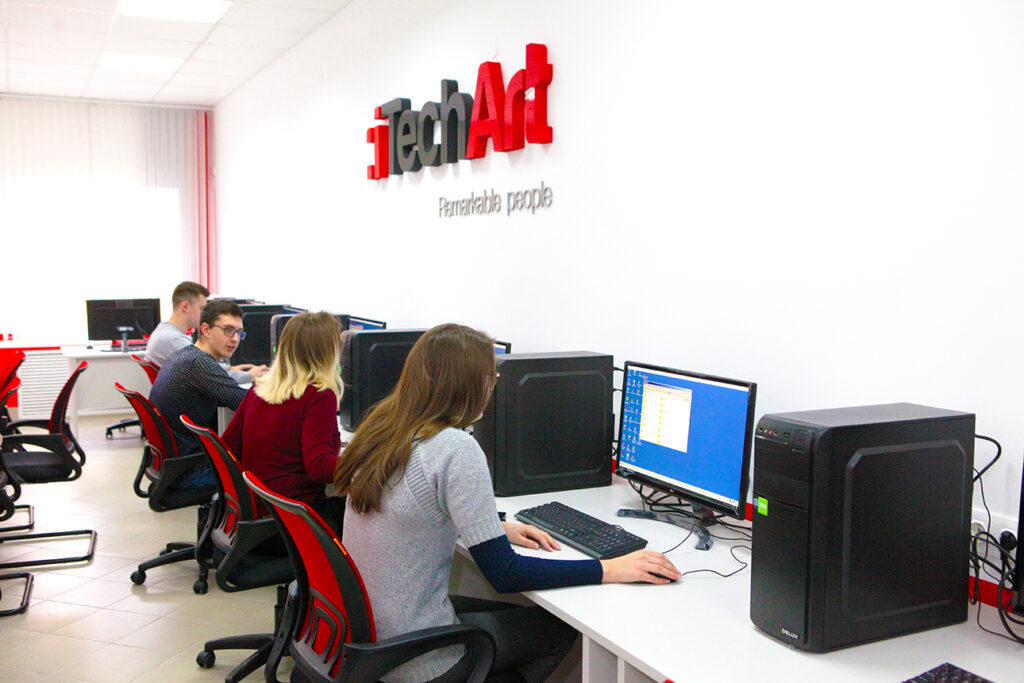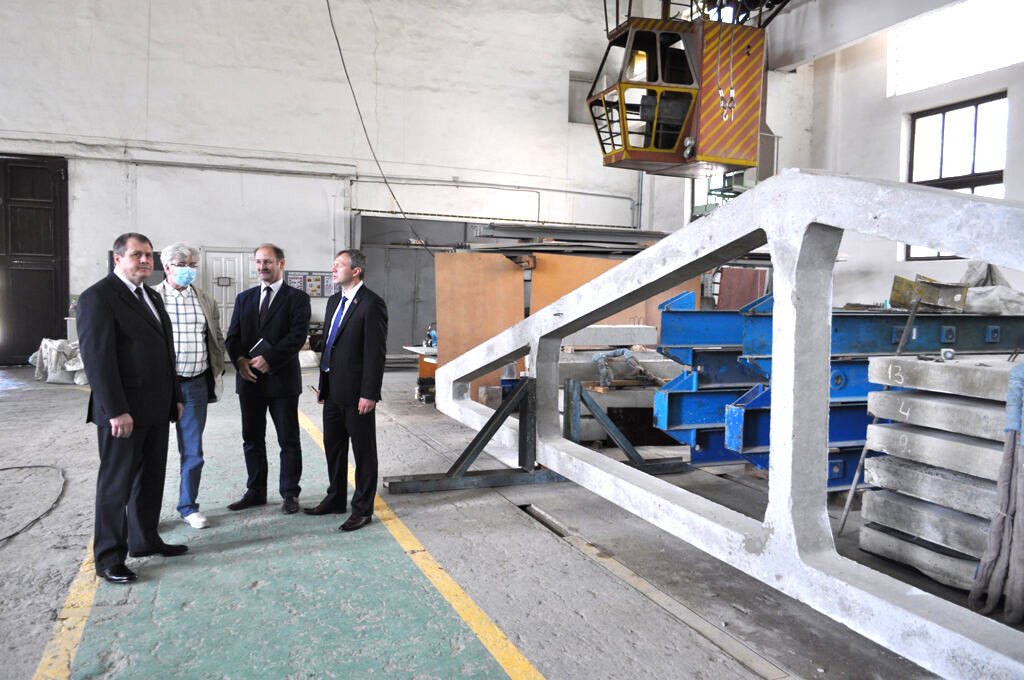On the last Sunday of January, the Day of Belarusian Science is celebrated in Belarus and this holiday is dedicated to the contribution of science to the development of our country.
Vice-Rector for Scientific Work of BrSTU Nikolai Nikolaevich Shalobyta spoke about the main directions of scientific activity of Brest State Technical University, its applied nature, the quality of training of engineers, educational prospects, and the new development strategy of the university.
Nikolai Nikolaevich noted, first of all, the leading role of the university in the post-Soviet space in adapting European standards and introducing them into modern construction, after which European companies were able to work in our market, including as investors. Leading scientists in the construction industry who have made a huge contribution to the development of the university are the Rector of BrSTU from 2002 to 2018, Doctor of Technical Sciences, Professor Petr Stepanovich Poyta, one of the leading scientific practitioners in the complex field of “foundations and groundworks of buildings and structures” ; Doctors of Technical Sciences, Professor Viktor Vladimirovich Tur and Anatoly Yakovlevich Naychuk, who made a significant contribution to the development of the theory of calculations of building structures. Most of the landmark objects built in the republic over the past 10-20 years were made on the basis of the developments of the First Vice-Rector of BrSTU until 2018, Candidate of Technical Sciences, Associate Professor Vyacheslav Ignatievich Dragan. Using the technology he developed, the coverings of the Slavic Bazaar amphitheater in Vitebsk, the dome of the National Olympic Committee, the entrance of the Brest Puppet Theater, the Victoria Sports Palace in Brest and many other iconic objects were built not only in our country, but also abroad.
Graduates of the Faculty of Electronic Information Systems of BrSTU are widely in demand in different countries of the world thanks to one of the strongest schools — the School of Artificial Intelligence, Doctor of Technical Sciences, Professor Vladimir Adamovich Golovko. Scientific research in the field of artificial intelligence, conducted under his leadership, is the basis for many developments, including projects of his students.
No less significant and known for its highly qualified graduates is the hydrological scientific school of Doctor of Geographical Sciences, Professor Alexander Alexandrovich Volchek. With his students, Alexander Alexandrovich formed a large regulatory and technical base.
Brest State Technical University is the only parent organization implementing the regional scientific and technical program “Innovative development of the Brest region for 2021-2025”, exclusive for the Republic of Belarus. The project is aimed at developing production in the region; the program is based on a research base combined with experimental design work. The project can be useful for small and medium-sized business, the development of large industries — by contacting our university, any enterprise can receive advice in the field of the economic block. The program is accompanied and supported by the teaching staff of the Faculty of Economics, headed by the Dean, Candidate of Economic Sciences, Associate Professor Victoria Vasilyevna Zazerskaya, and the team of the university’s research department.
In general, when it comes to services, for example, assessing the technical conditions of buildings and structures, design work, business plans, areas in the field of IT technologies and ecology, you can safely contact our university. For example, when assessing the technical condition of buildings and structures, we use the most modern equipment. With the support of the innovation fund of the Brest Regional Executive Committee, the university purchased unique 3D scanners. Now, using modern information modeling tools, after scanning buildings or objects of complex geometric shape, you can quickly build a digital model of them with all the objects that are in them. Designers and other specialists can work with the resulting virtual model.
The task of science is to create, develop and advance new technologies in all sectors of the national economy. Thus, to introduce new technologies using collaborative robots in production, an educational and practical laboratory of industrial robotics has been created. The industry laboratory “Identification Systems and Industrial Robotics” was created to keep up with trends, where we have the opportunity to work with trademark recognition systems and product labeling. In 2023, another laboratory appeared — “Digital Engineering of the Agro-Industrial Complex”. The agro-industrial complex is not exactly a specialized area of BrSTU, but there is a strong school of artificial intelligence here. And the world is already advancing IT technologies in agriculture. Today or tomorrow, drones will begin to be used in this area; there is a need to digitize fields and know everything about them: from the chemical composition of the soil to the topography, soil moisture…
The task of the university is to see the new, the progressive and to create a source of the up-dated knowledge.
